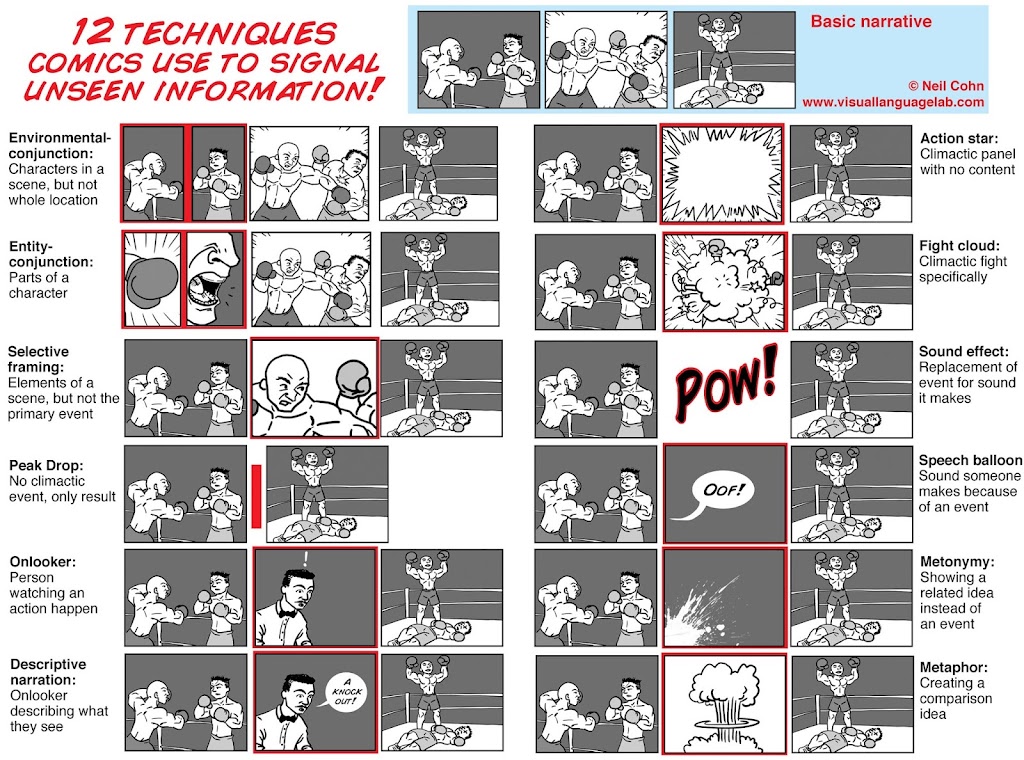New paper: Being explicit about the implicit

My cascade of recent new papers continues with my latest paper, “Being explicit about the implicit: inference generating techniques in visual narrative“, which has recently been published open access in […]
Spider-Man’s naughty adventures within or between panels
A friend of mine recently pointed me to an unusual debate that’s raging about a recent Spider-Man comic where Peter Parker apparently is within the mind of Dr. Octopus and […]
Segmentations in visual narrative
Gernsbacher’s 1985 paper “Surface information loss in comprehension” is an important article on the comprehension of sequential images, and one that has informed much of my current research. It is […]
New essay: The limits of time and transitions
On the *NEW* publication front: The first issue of the new journal Studies in Comics went online today, and I have a brand spankin’ new article in it. The first […]
Transition Overload!
I’ve frequently heard it said that every panel in a comic has to connect to every other panel. I’ve tried to go about showing the problems with individual transitions or […]
Indexing Events with Panels
A comment on my review of Magnussen’s piece on semiotics in comics asked me to expand on this part: More interestingly, she claims that the “still-images of actions” are also […]
Closure’s assumptions
Patric continues his defining of “comics” with a discussion of “closure.” I’ve talked before about the problems with the idea of closure, but it strikes me that there are a […]
Coercion… of meaning!
Today I gave my big first year project presentation to the psychology department. From what everyone has said, it went very well. Of course, the project itself is still underway, […]
Time essay analyzed
In Derik’s continuing exploration of panel transitions (Part 1, Part 2, Part 3), he does an interesting job of dissecting my latest essay “Time Frames… Or Not.” To keep things […]
Problems with Transitions
Over at Derik’s blog he’s been examining McCloud’s panel transitions based on influence from film theory (Part 1, Part 2, Part 3, Part 4, Part 5 …more to come). While […]